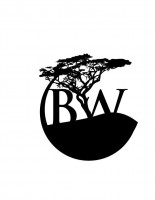Once envisioned as a pastoral paradise shrouded in mystery, the Tibetan plateau is facing tremendous social and environmental changes in the 21st century. Climate change and environmental policies are having a dramatic affect on the region’s ecosystem.
Desertification is affecting the sustainability of livestock and wildlife, and threatening the biodiversity of the grasslands. Rapid economic development and “ecological relocation” policies are altering traditional livelihoods. What is currently happening on the grasslands will pose new challenges for Tibetan and Mongolian communities, as well as have a profound impact on both the ecosystem and traditional nomadic lifestyle. What exactly is the current environmental status of the Tibetan grasslands and what does this mean for people who live there? Where have all the yaks gone?
This weekend, Trace Foundation is presenting the first event of its Visions of Development Lecture Series: “Where Have All the Yaks Gone? Insight into the Changing Landscapes and Livelihoods on the Tibetan Plateau”. This event will explore the various economic policies and environmental changes that are affecting the grasslands and the nomadic peoples’ way of life. Join us this Friday and Saturday, May 20th and 21st, for presentations and a discussion panel on the current challenges and necessary steps to conserve the Tibetan and Mongolian grasslands.
Registration is free and open to the public by clicking here. If you are unable to attend the event in person, the event is available to watch live on livestream.com/tracefoundation.
There will be five distinguished speakers joining this event:
Professor Richard Harris, our keynote speaker, is a professor at the University of Montana. His lecture will examine the potential causes of grassland degradation and its effect on the region’s biodiversity.
Professor Julia Klein of Colorado State University will discuss the effects of climate change on the grasslands and Tibetan pastoral livelihoods, which often results in ‘snow disasters’ that threaten the ecosystem.
Professor Kanako Kodama from Chiba University, Japan, will discuss the policy of “ecological migration” in Inner Mongolia in relation to the increased rate of deforestation, desertification and sandstorms in the region.
Professor Hong Jiang will be joining us from the University of Hawaii to discuss the interconnected relationship between the Mongolian grasslands and the culture of the Mongolian people, and how the degradation of one directly impacts the other.
Finally, Kabzung will be joining us from Department of Geography, University of Colorado, Boulder. His research is focused on grasslands management, rural development and poverty alleviation in Chengdu, Sichuan.
For more information about “Where Have All the Yaks Gone?”, please visit our website, www.trace.org/event/events. If you cannot attend the event in person, we welcome you to watch the event free online at www.livestream.com/tracefoundation.
Trace Foundation is a non-profit, non-governmental organization based in New York City with field offices in China. It has no political or religious affiliations. Trace Foundation works with local partners to support sustainable development in Tibetan communities within China, while respecting cultural and environmental principles. The foundation hosts various events and an ongoing lecture series which bring together
scholars, scientists and conservationists from diverse international and disciplinary backgrounds to examine and share experiences on what is happening right now in Tibetan communities in China.





